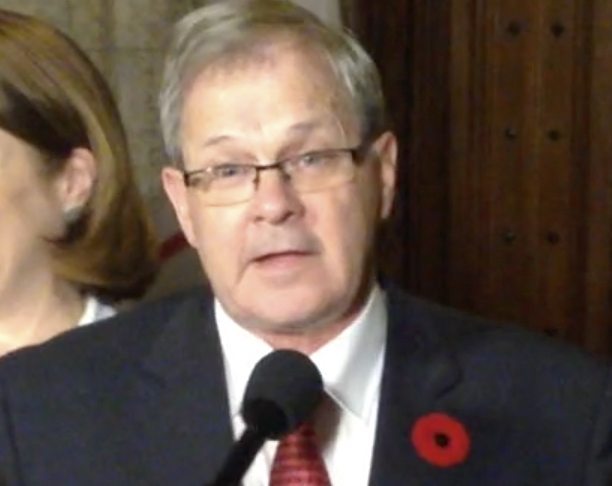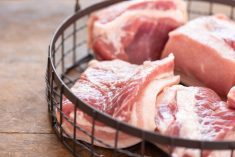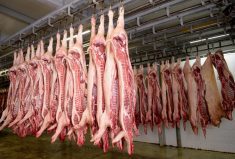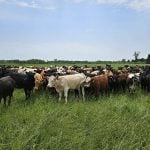Manitoba Co-operator – After just six days as Canada’s new agriculture minister Lawrence MacAulay hasn’t taken a position on a number of agricultural issues, but he knows how he will: “I intend to listen to the man that does the work — the farmer.”
The 69-year-old former Prince Edward Island dairy and seed potato farmer and former Solicitor General of Canada, Minister of Labour, Secretary of State (Veterans), and Secretary of State (Atlantic Canada Opportunities Agency), was sworn in as Canada’s 34th agriculture minister Nov. 4. As of Nov. 10 he still didn’t have any political staff, including a press secretary, to assist him.
Read Also
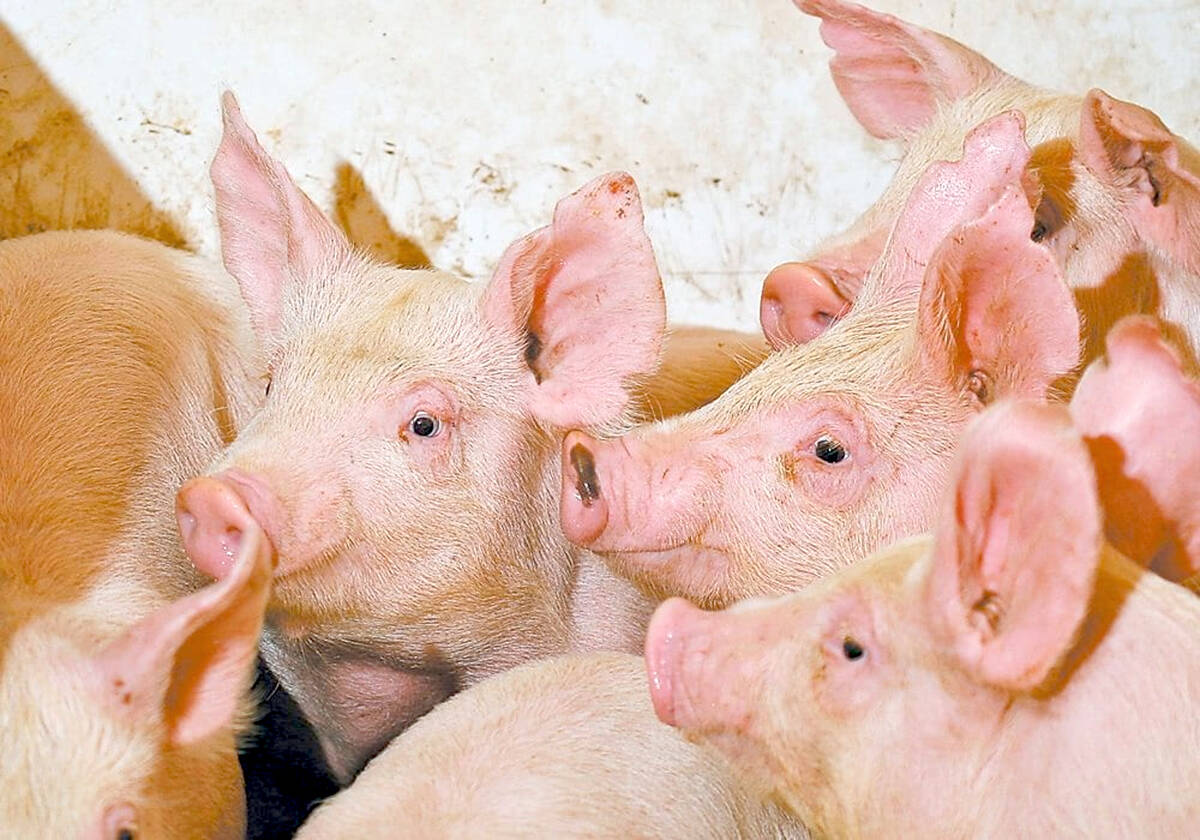
U.S. livestock: Cattle prices down, hogs rise again
Live and cattle futures on the Chicago Mercantile Exchange retreated for a second session, while lean hogs extended their rally….
“On all of these issues I will be fully briefed on the pros and cons,” he said in a brief interview with the Manitoba Co-operator Nov. 10. “I intend to listen to both sides of the issue and then bring a recommendation forward to the government on behalf of the agriculture sector.”
MacAulay said he agrees with fellow cabinet minister Ralph Goodale that improving rail service for Western grain farmers and trade are at the top of the new government’s agricultural agenda.
According to media reports, MacAulay will likely support the Trans Pacific Partnership (TPP) agreement reached a month ago among 12 Pacific Rim countries.
“I suspect when I evaluate the whole thing, it will be something I support,” MacAulay told Thomson Reuters Nov. 10. “I see nothing today that would make me not want to support the whole package.”
MacAulay said a $4.3 billion compensation package promised by the previous government to dairy, poultry and egg farmers who will face more import competition looks fair.
Canada is a trading nation MacAulay told the Manitoba Co-operator.
“The TPP is an important piece of our trade legislation,” he added. “We’ll talk to the stakeholders and we will be bringing it forward the House of Commons.”
TPP faces a tough battle to win support in the U.S. Congress. Republican Senator Orrin Hatch said on Nov. 6 the Obama administration may have to renegotiate parts of the deal.
Japan’s economy minister has said the deal was like a “glass ornament” that would disintegrate if a part of it were to be renegotiated.
“There can be no re-doing of the agreement,” Akira Amari told a news conference in Tokyo.
“Renegotiation is not an option,” agreed Caroline Atkinson, Obama’s deputy national security adviser for international economics, on a call hosted by the Atlantic Council think tank.
RIM co-founder Jim Balsillie fears TPP could cost Canada billions and become the worst-ever policy move of the former Harper government. He claims the Americans and Japanese have tipped intellectual property rules in their favour.
Like his predecessor Gerry Ritz, MacAulay hopes the United States abolishes its Country of Origin Labelling (COOL) law before Canada is forced to retaliate by imposing $3 billion in tariffs against U.S. imports, including beef, pork, wine, cherries and mattresses.
“We have an excellent relationship with the United States of America and we want to continue to have that relationship,” MacAulay said. “I talked to the (United States’) Secretary of Agriculture (Tom Vilsack) and the (U.S.) ambassador to Ottawa (Bruce Heyman) and the issue was brought up. They understand where we are at. I can only hope that they comply with the ruling from the WTO, but if they don’t then decisions have to be made and retaliation could happen. But it’s something we do not want to do, but every country has to follow the rules.”
Former Saskatchewan farmer and agriculture minister Ritz, enjoyed a close relationship with many Western farm organizations. MacAulay said he’s determined to “get close” to Western Canada farm groups too.
“I intend to and need to listen to their concerns and that’s exactly what I will do,” he said. “As you know I’ve only been in a few days, but I have contacted most of the (agriculture) ministers across the country and my counterparts in the United States and Mexico. I am well aware of what goes on, on the Prairie. I have to make sure I have an open ear to what takes place in the agricultural sector in the western part of this country. I know how important it is. I know that it’s massively important to our economy. We export a large amount of high quality grains and oilseeds from Western Canada and I intend to be their voice at the table. My job is to improve their standard of living and that’s what I want to do.
“I look forward to meeting the groups. I want to know these people on a first name basis and do the best I can in order to make sure their quality of life and get the best remuneration possible for their high quality products. And that’s my job.”
Although no longer a dairy farmer, MacAulay said he was and remains a strong supporter of supply management, which protects producers from imports and allows farmers to earn better returns by not over producing to supply the domestic market.
[email protected] with files from Thomson Reuters





